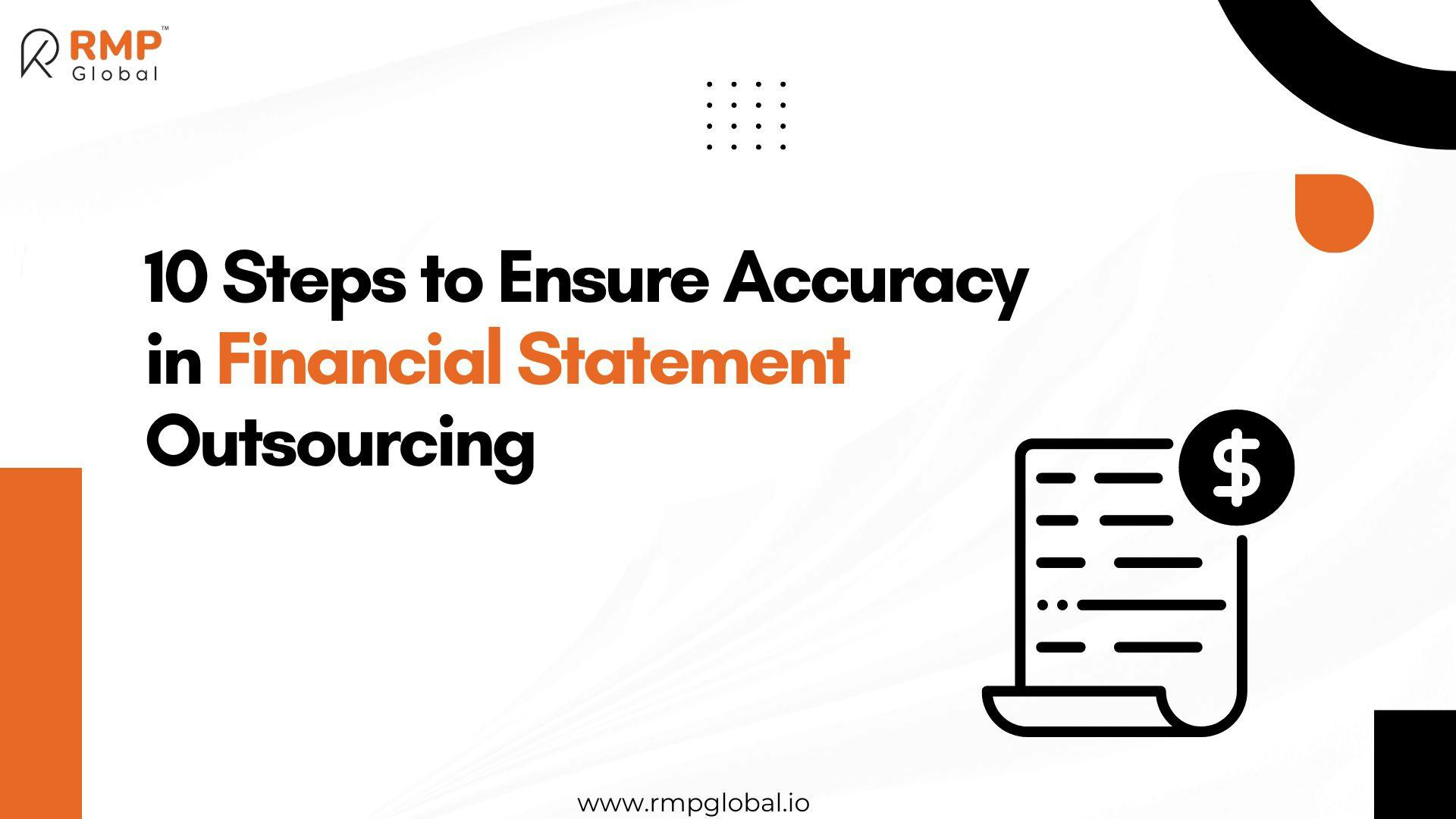
Share
In today’s complex business environment, accurate financial reporting is not just a regulatory formality but a fundamental necessity for informed decision-making. With more companies turning to outsourcing as a cost-effective solution for financial services, the accuracy of these external operations becomes paramount. This article outlines ten crucial steps to ensure that your financial statement outsourcing is both reliable and effective.
Step 1: Choose the Right Service Provider:
Selecting a competent provider is the foundation of successful outsourcing. Look for providers with a proven track record, relevant certifications, and positive testimonials from similar industries. This ensures that they understand the nuances of your sector’s financial requirements.
Step 2: Clearly Define Scope and Expectations:
Miscommunication can lead to errors and dissatisfaction. Clearly outline what financial tasks are being outsourced, the standards expected, the formats required, and the deadlines to be met. This clarity will guide the service provider and align your expectations.
Step 3: Establish Communication Protocols:
Effective communication is key to any outsourcing relationship. Establish regular check-ins and updates to discuss the progress, tackle any issues, and make adjustments to strategies as necessary. Decide on the preferred channels and times for communication to keep both parties informed.
Step 4: Utilize Advanced Technology:
Use the latest technology to facilitate seamless data transfer, real-time updates, and efficient processing of financial statements. Ensure that the software used by your provider is compatible with your systems to avoid integration issues.
Step 5: Implement a Robust Security Framework:
Financial data is sensitive and must be protected rigorously. Ensure your outsourcing partner adheres to the highest data security standards and complies with relevant laws to protect your financial information from breaches and unauthorized access.
Step 6: Regular Quality Checks:
Integrate continuous quality assurance processes to check the accuracy of the financial statements. Regular audits and spot checks can help catch errors early and prevent them from affecting the final reports.
Step 7: Train Your Team to Handle Outsourced Tasks:
Your in-house team should be well-versed in managing outsourced relationships. Provide training on the tools, processes, and best practices for monitoring and liaising with your outsourcing provider to ensure smooth operations.
Step 8: Ensure Regulatory Compliance:
Stay compliant with all financial regulations applicable to your industry. Regularly update your service provider about new regulations and ensure they adjust their processes to maintain compliance.
Step 9: Set Up Performance Metrics:
Define clear metrics to measure the performance and output of your outsourcing provider. These could include turnaround time, error rate, and satisfaction levels. Regularly review these metrics to ensure the service meets your business needs.
Step 10: Foster a Partnership Approach:
View your relationship with the outsourcing provider as a partnership rather than a transaction. Encourage open feedback and collaborative problem-solving to improve processes continuously and achieve the best results.
Conclusion:
Outsourcing financial statements can significantly benefit your business if done correctly. By following these ten steps, you can ensure the accuracy and reliability of your outsourced financial operations, ultimately leading to better business decisions and enhanced financial performance. Consider these guidelines as you select and work with an outsourcing partner to handle your company’s financial needs.
This article is only a knowledge-sharing initiative and is based on the Relevant Provisions as applicable and as per the information existing at the time of the preparation. In no event, RMP Global or the Author or any other persons be liable for any direct and indirect result from this Article or any inadvertent omission of the provisions, update, etc if any.
